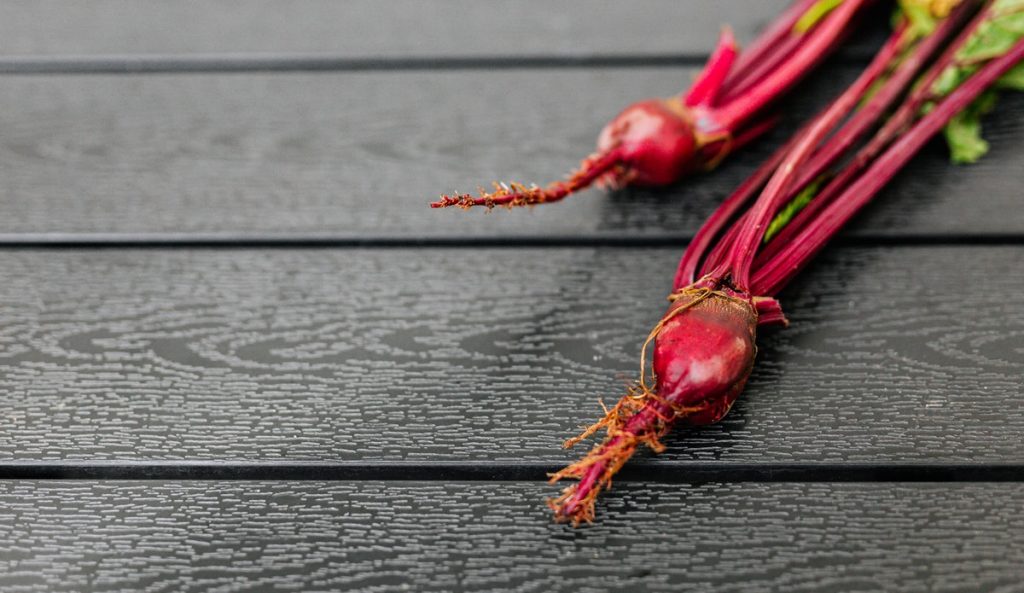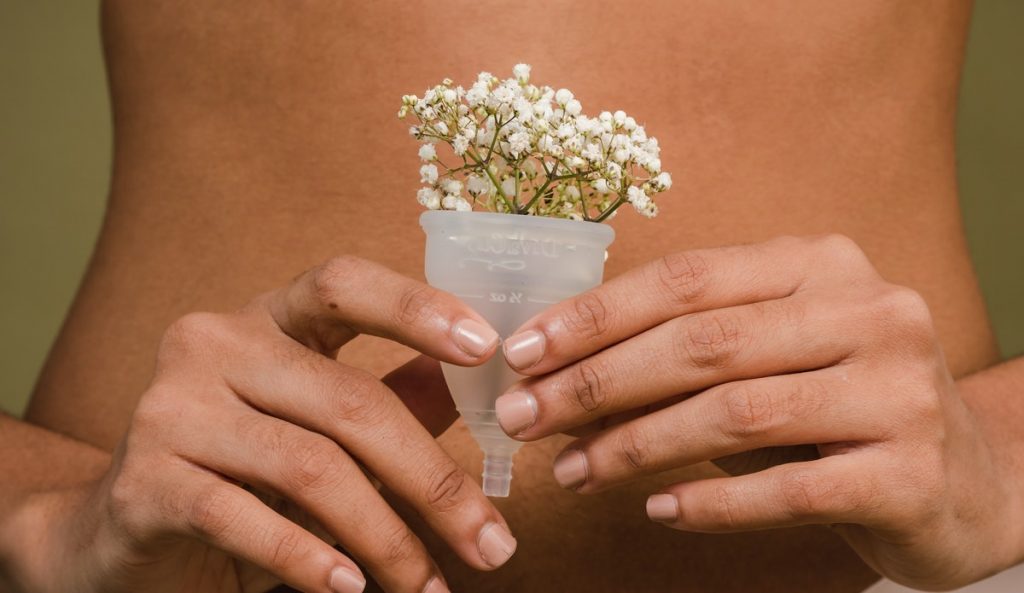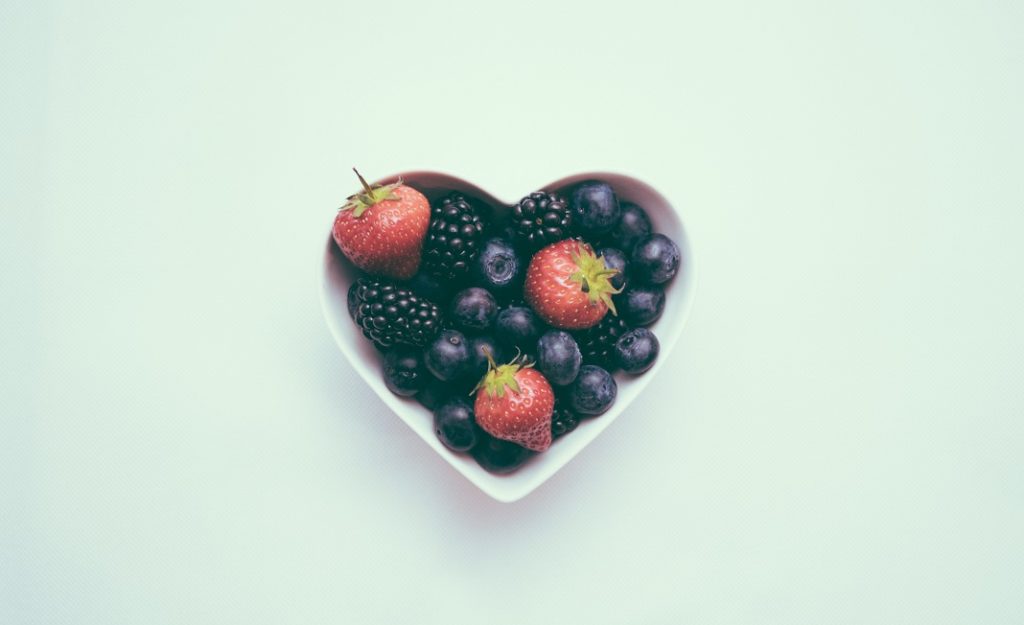Table of Contents
Among the many benefits of beets is its ability to improve your fitness levels. The pigment nitric oxide is known to dilate blood vessels, allowing more oxygen to reach muscles. Hence, beets can increase your endurance while exercising. In fact, Spanish researchers discovered that drinking beetroot juice after exercise improved endurance in athletes. In order to benefit from beets’ health benefits, make sure to ingest the juice within 90 minutes of physical activity. Alternatively, you can also add it to a smoothie.

Nutritional Facts About Beets
One cup of beets contains the same amount of calories as a serving of fruit. They’re high in carbohydrates, but only nine grams per cup. And unlike artificial sweeteners, natural sugars aren’t as harmful to your waistline as those found in processed foods. As a result, you can eat beets in moderation, without feeling guilty about it.
Beets contain plenty of essential vitamins and minerals. In fact, they contain a small amount of almost every mineral and vitamin a person could want. Beets are particularly high in folate, which is essential for healthy growth. Manganese is an important mineral for metabolism, and copper is essential for making neurotransmitters. Several nutrients in beets may also help with the symptoms of high blood pressure.
- Calories: 44
- Protein: 1.7 grams
- Fat: 0.2 grams
- Carbs: 10 grams
- Fiber: 2 grams
- Folate: 20% of the Daily Value (DV)
- Manganese: 14% of the DV
- Copper: 8% of the DV
- Potassium: 7% of the DV
- Magnesium: 6% of the DV
- Vitamin C: 4% of the DV
- Vitamin B6: 4% of the DV
- Iron: 4% of the DV
Let us look at some of the top health benefits of beets in detail.
1. Beetroot can reduce high blood pressure
One recent study found that the consumption of beetroot juice could lower blood pressure. A total of 64 men and women were enrolled. Half had high blood pressure but were not on medication. The volunteers were then randomly assigned to two groups. One group consumed a 250-milliliter glass of beetroot juice per day while the other group drank a placebo. The blood pressure levels of the participants were monitored before and after the study. The intervention group saw a significant drop in blood pressure. It also reduced arterial stiffness.
Research has shown that drinking beetroot juice may reduce blood pressure by up to 7 points per day. Beets contain high levels of nitrates, which help the body to process them. The nitrites in beets can lower blood pressure by as much as 2 points per day. However, people should be aware of the risks and side effects of beetroot juice. If you do decide to try beetroot juice, make sure to consult a doctor first. Beetroot juice is available for as little as $7 at a health food store.
2. Beets Prevent Heart Disease and Stroke
If you’re looking to prevent cardiovascular disease, beets are a great food to include in your diet. They contain vitamin C, fiber, folate, potassium, and betaine, an essential nutrient for cardiovascular health. Additionally, betaine reduces the amount of homocysteine, a substance that damages blood vessels and contributes to heart and peripheral vascular disease. Other benefits of beets include reducing inflammation in the internal organs and may even protect against chronic diseases.
Inorganic nitrate in beets is converted to nitric oxide, which reduces blood pressure. The juice can lower blood pressure in as little as one hour. Nitric oxide helps dilate blood vessels, improving blood flow, and reducing the risk of cardiovascular disease. A study from the Fielding School of Public Health at UCLA found that drinking beet juice daily can lower blood pressure in overweight adults.
3. Beets Can improve athletic performance
The juice made from beets is a great source of nitrate, a naturally occurring chemical that improves cardiovascular function and increases oxygen and power to muscles. Its other health benefits include improved blood flow and heightened muscular contraction. Beets contain the highest amounts of nitrate in any food, making them an excellent choice for sportspeople looking to improve athletic performance.
A good source of beet juice is Energy Fire Brew, which contains Beets. It also contains hawthorn berries and cinnamon, which are packed with antioxidants. It is best to consume a glass of this beverage about two to three hours before training, so your body has time to absorb it. If you’re a fan of the energy-boosting qualities of beet juice, consider taking a small cup before your workout.
A recent study showed that consuming beet juice before a workout can increase endurance and speed. Runners who consumed beet juice before their workouts were three percent faster than those who didn’t. Likewise, cyclists who drank beet juice before a race was able to ride for up to 16 percent longer. So, what are you waiting for? Give beets a try and see how they can improve your performance!
4. Beetroot strengthens your bones
This powerful food is high in vitamin C, as well as folic acid and potassium, all important for strong bones and joints. Not only that, but beets have other benefits, too. They boost your immune system and fight a variety of illnesses. One of the most significant of these benefits is its ability to prevent osteoporosis and strengthen your bones.
For preventing osteoporosis, beets are loaded with calcium, magnesium, and folate, all important nutrients for building bones. Beets also contain sulfur-containing compounds that can prevent cancer. Manganese is another important mineral found in beets, as it can help prevent bone loss and lower the risk of osteoporosis. Consuming a diet high in fruits and vegetables is essential for preventing bone loss and maintaining strong, healthy bones.
5. Beetroot may Boost Digestion

A new class of dietary antioxidants known as betalains has been discovered in beetroot. In the International Journal of Chemical Studies, Neha P reviewed the chemical properties of beets, which include betalains. Beets are also known to improve digestion, and some research suggests that they may even delay the onset of age-related problems.
Aside from beetroot’s ability to improve digestion, researchers are also studying whether it can help slow the progression of diseases and symptoms, including diabetes and Alzheimer’s.
6. Beets may support brain health
Recent studies indicate that beets may support brain health. The pigment betanin in beets can dilate blood vessels, increasing blood flow to the brain. Improved blood flow to the brain is associated with improvements in cognition and a reduced risk of neurodegenerative diseases, such as Alzheimer’s. The findings were presented at the 255th National Meeting and Exposition of the American Chemical Society. Ultimately, eating beets may have a positive effect on the aging brain, which is linked to increased cognitive functions.
Research on beet juice suggests that it may support brain health by increasing the blood flow to the brain. High concentrations of nitrate in beets and other green vegetables are thought to improve blood flow and protect the brain from dementia. The nitrate found in beets also helps open blood vessels, thereby improving blood flow. Other foods that contain high amounts of nitrate include celery, cabbage, spinach, and some lettuce.
7. Beets may have anti-cancer properties
Beets are also rich in betacyanin, a plant pigment that protects cells from damage. Various studies have shown that betacyanin reduces the growth rate of triple-negative breast cancer cells by 12.5%. The beet contains high levels of oxalate, a compound found in breast cells. Oxalate may promote breast cell transformation and can cause calcification. But because betacyanin is neutralized by betanin, beets are best consumed raw or lightly steamed.
Some research has shown that beetroot has antioxidant, anti-inflammatory, and detoxifying properties. In addition to these benefits, beetroots are rich in fiber, which limits the amount of carcinogens in the colon. Furthermore, beetroots are excellent sources of N-acetylcysteine, which is an antioxidant with anti-cancer properties. One preliminary study showed that beetroots increased the number of normal cells in colon tissue.
8. Beetroot may Promote Weight Loss
One hundred grams of beetroot contains only 44 calories. Aside from being low in calories, beetroot also has plenty of antioxidants, fiber, and vitamin C. It is also high in folate and nitrates. Plus, it increases your metabolism and kickstarts your weight loss efforts.
You can lose weight by eating beets regularly. They contain no calories and high fiber, which helps you feel full for longer. Plus, they contain vitamins and minerals that support a healthy digestive system. And, unlike most fruits and vegetables, beets don’t have any fat and are packed with nutrients. You can also use beetroot powder as a natural lipstick color or blush! Just be sure to read the labels carefully.
9. Beetroot May Promote Liver Detoxification
It may be difficult to believe, but beetroot can help promote liver detoxification. It is loaded with magnesium, iron, and vitamin C, and is hailed as a superfood for its many health benefits. Not only does it improve skin and hair health and cholesterol levels, but it may also support liver detoxification. You can easily incorporate this vegetable into your diet by adding it to salads or drinking the juice of this root.
It helps the liver detoxify blood, produce bile, break down hormones, and store essential vitamins, minerals, and iron. Beetroot juice can be consumed as a drink, and it can improve digestion and help fight dementia and Alzheimer’s disease. You can juice beetroot yourself or purchase juice made from it. Just remember to consult your doctor before taking beetroot juice.
10. Beets may Improve Heart Health

Eating beets can help your heart in more ways than one. These heart-healthy vegetables are low in calories, yet high in valuable vitamins and minerals. The color comes from a pigment called betalain, which has anti-inflammatory properties. The food is also high in antioxidants and phytochemicals, such as lutein/zeaxanthin and folate. Beets also contain large amounts of glycine, an essential amino acid.
The inorganic nitrates in beets are converted to nitric oxide, which improves blood flow and lowers blood pressure. The beets’ nitric oxide-lowering properties are temporary, so they’re not a cure-all for heart disease. And beet juice should be consumed regularly to reap their benefits. If you’re concerned about blood pressure, try adding some beet juice to your salad!
11. Beets Prevent Respiratory Problems
Despite being rich in sugar, beets contain many important nutrients. They are high in vitamins A, B, C, and E. Compared to spinach, they also contain significant amounts of magnesium, iron, copper, phosphorus, boron, and selenium. Beets are also a great source of dietary fiber and have many other benefits. You may have heard that beets prevent respiratory problems, but you may be wondering what they can do for you.
12. Beetroot are a High Source of Fiber
he high fiber content of beets encourages the growth of good bacteria in the digestive tract, which fights disease and boosts the immune system. Beetroots also aid in digestion, helping to reduce the risk of constipation. These vegetables are rich in other nutrients, including folate and potassium, which protect the heart.
Research has shown that beetroots can reduce the risk of developing age-related macular degeneration. In one study, people who consumed 100 to 142 mg of vegetable nitrates daily showed a 35% reduction in the risk of developing this disease. The researchers also found that beetroot juice improved endurance by increasing the oxygen-carrying capacity in the blood. However, these results were not replicated in humans.
A half-cup serving of cooked beets contains 0.8 grams of soluble fiber. Soluble fiber is similar to the pectin, mucilage, and gum that you find in cooked barley and rye bread. This substance absorbs water and swells into a jelly-like mass. High fiber intake has been linked to lower levels of cholesterol and blood sugar.
13. Beetroot can prevent Anti-aging
Beetroots are rich in carotenoids, which help prevent macular degeneration. They are also a great source of nitrates, which stimulate blood flow and are known to prevent age-related dementia.
Benefit of beetroot is that it has anti-oxidants that can help prevent the signs of ageing, especially fine lines and wrinkles. The antioxidant properties of beets include lycopene, squalene, and niacin, all of which have a positive effect on the skin. In addition to preventing wrinkles, beetroot also helps to reduce acne and blemishes, while removing blackheads.
14. Beets can Promote Liver Detoxification
Beets can promote liver detoxification. They contain a range of nutrients, including vitamins and minerals. The red pigments in beets are known for their anti-inflammatory, antioxidant and detoxification properties. Beets contain lutein and zeaxanthin, two powerful antioxidants that protect the arteries. Beets also provide good amounts of fiber, which can help improve digestion and reduce fat levels in the liver.
15. Beets may help fight inflammation
Studies have shown that beets have antioxidant benefits and can fight inflammation. The phytochemicals in beets, called betalains, are similar to those found in anthocyanins. You can juice beets, add them to a salad, or roast them. Besides being healthy for you, beets are also low in fat and cholesterol. This means they are a good option for people who are concerned about their diet’s cholesterol and fat content.
FAQs About Beetroot
How do Beetroot benefit females?
One of the many benefits of beetroot for women is its ability to improve iron levels during menstrual periods. Not only that, it also promotes fertility and increases libido. Additionally, beetroot is useful in preventing birth defects and promoting cardiovascular health. Its other benefits include boosting immunity and improving overall health. Among its other benefits, beetroot can improve the appearance of your lips and improve your skin tone. It is also useful for treating acne and preventing pimples.
Beetroots are rich in antioxidants, which help protect cells from free radical damage. Antioxidants increase blood antioxidant levels, which can protect the body from free radicals. Free radicals can damage DNA and cell structure. Beetroot’s antioxidants help the body combat these harmful substances by suppressing inflammation and reducing the risk of cancer. The food also contains betalain pigments, which support the liver and blood purification process.
How does Beetroot benefit males?
Low folate levels are linked to decreased sperm counts. Erectile dysfunction is also an issue, but beetroot can help with that too. And beetroot has been shown to have anti-inflammatory properties. For this reason, it is so important for men to include this vegetable in their diets.
Cardiovascular complications are among the most significant health risks for men. Heart attacks, strokes, and atherosclerosis can all be caused by heart disease. However, beetroot has numerous knock-on effects on various systems of the body. If you want to improve your heart health, beetroot is an excellent choice. The benefits of beetroot go far beyond the heart.
What are the Benefits of beetroot for the skin?
One of the best foods for glowing skin is beetroot, which is rich in Vitamin C and anti-inflammatory properties. It can be used to treat acne because it is a natural skin cleanser, but beetroot alone will not cure your skin problem. You also need other natural remedies, such as antibiotics and zinc, to treat acne. In addition to being an excellent acne-fighter, beetroot can help your skin stay clear from pimples. You can even apply the juice of this plant directly to acne or scars.
The anti-inflammatory properties of beetroot juice can help improve the appearance of wrinkles. Its high content of folates and antioxidants can reduce the appearance of wrinkles and fine lines. It can also reduce skin pigmentation, which can make your skin appear dull. Beetroot juice can be used as a face mask for wrinkle-free skin. If you want to learn more about the benefits of beetroot for skin, read on.
Beetroot has many benefits for the skin, including improving skin circulation. A beetroot face mask contains antioxidants and can help your skin glow. It contains milk, which acts as a natural humectant, and locks in moisture. In addition to giving your skin a healthy glow, beetroot also helps reduce dark circles. By following these simple tips, you can make the most of beetroot for the skin.
What are the benefits of beetroot juice?
Beetroot is rich in betalain, a phytonutrient with potent antioxidant, anti-inflammatory, and detoxification properties. This vegetable is particularly beneficial for liver health. It flushes out toxins while stimulating the production of healthy liver cells. Other benefits of beet juice include enhancing gut mobility and improving metabolism. This fruit has numerous health benefits, and many people are starting to enjoy them!
A 100-gram serving of beetroot contains only 43 calories, 0.2 grams of fat, 1.6 grams of protein, and ten grams of carbohydrates. Beetroot juice is also known to temporarily lower blood pressure. The juice contains nitrates, which convert into nitric oxide and are known to enhance blood flow to muscles, organs, and the brain. For these reasons, beetroot juice is becoming an increasingly popular food and beverage.
While there are no formal recommendations for beetroot juice, experts recommend drinking at least 250 milliliters a day. For regulating blood pressure, a 250-milliliter glass of beetroot juice is appropriate. More than this amount may cause some problems. Additionally, beetroot juice is best absorbed in the morning, but it can be consumed anytime. If you’re not a morning person, be sure to include a glass of beetroot juice in your daily routine.
A recent study concluded that drinking beetroot juice significantly increased running performance in healthy, athletic men. Researchers measured brain blood flow using two five-kilometer treadmill time trials with and without beetroot. They found that participants who drank beetroot juice ran faster and longer than those who drank placebos. This result was seen across all genders and during both trials. This is good news for runners and triathletes!
What are the Side effects of eating raw beets?
Beets are packed with vitamins, including Vitamins A and C, and are particularly rich in folate. Folate reduces the risk of birth defects and reduces prenatal anemia. Another benefit of beets is their high fiber content, which accounts for about 11 percent of the daily requirement. These properties are essential for optimal health. However, there are some risks associated with eating beets.
What are the benefits of beets during pregnancy?
If you’re pregnant and looking to make a few dietary changes, beets are a great option for you and your baby. You might think of the benefits of beets as being associated with weight loss, but these aren’t the only reasons to add this healthy root vegetable to your diet. During pregnancy, beets contain fiber, which is good for your body and baby. Beets can help you stay healthy and avoid several problems with your digestion.
One of the major benefits of beets is their ability to help lower your risk of miscarriage. Beets also contain beta-carotene, which boost the immune system. They can also reduce the chances of pregnancy complications, such as miscarriage and premature labor. While beets are best eaten raw, you should be aware of potential side effects. When preparing beets for your family, be sure to check with your doctor if beetroot is safe for you and your baby.















